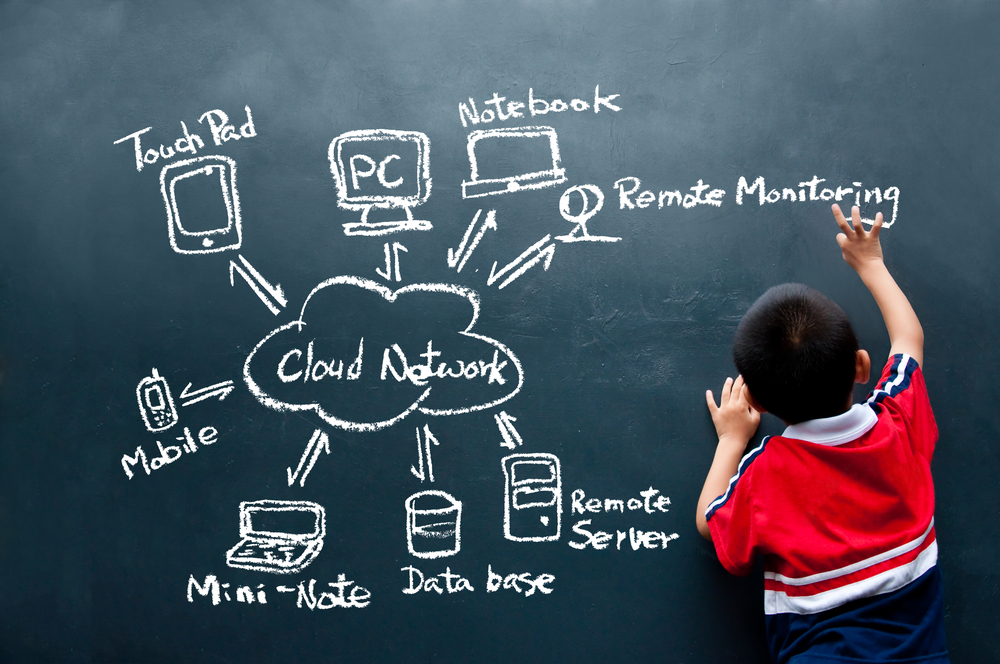Clouds: It’s raining benefits

Every working day you start by checking your e-mail. Several tabs of your browser are opened. You move the cursor along your inbox, reply to unanswered e-mails. You revisit your daily to-dos; check the calendar for any meetings. You remember that late proposal so you go to you folders and start working on it.
Imagine losing all this data and months of work?!
According to EMC global data protection index, on average Companies lose 2.23 TB of data per year. That’s equivalent to 23 million e-mails, costs the business 1.2 million dollars and 4 days of downtime.
Clouds are your rescuer.
How can they save you?
Clouds are one type of virtualization technology, which involves creating a virtual version of something such as a server, a storage device or network resources that could help your business. Clouds or Cloud storage are online data storage and backup services that you can access from any location using just a website and sometimes a desktop application. Unlike websites, not everybody can access your data unless you choose to share them with your people. Almost 43% of companies who face data loss crisis depend on clouds for recovery, EMC states. Here are four ways how clouds can benefit you.
You can carry your data anywhere with you.
Although portable hard drives, flash memories and memory cards offer you an amount of data in your pocket, they still don’t offer you much. Along with mobility, flexibility comes on top of benefits that cloud users get. You can let go of the fear of getting your computer spammed while using a flash memory for data transfer. Also, clouds do not require certain hardware on your computer unlike memory cards and hard drives.
An Intel-sponsored study states that 1$ billion of laptops are lost annually. In addition, to a study by Carnegie Mellon University mentioned that more than 15% of portable hard drives fail annually. Cloud users worry less about losing their portable hardware storage device.
You can choose the space that suits your needs.
The growing industry of clouds now tries to offer several reliable space packages. Some platforms offer completely free space, others offer a certain amount of free data followed by a paid upgrade for you storage space.
Google drive and Microsoft’s one drive, two cloud storages, offer the largest free space. They both give you 15 GB of space for free and you can upgrade up to 1 TB paying an amount of 7-10$ per month. Dropbox, cloud storage, offer a smaller space up to 2 GB for free and can give you up to 16 GB if you refer Dropbox to your friends and network for an extra 500MB upon 1 referral.
You can control all documents on one platform.
Previously you would have sent documents across your team. Also, it would require any sort of meeting to view updates. Now this isn’t the case for cloud users. Clouds give you a syncing option that ensures all your data files are automatically updated. Using the sharing option with the syncing option you and your team could view your whole work together with few clicks. More The more tech devices you have the more you data storage process becomes a hassle. Having data divided among smartphones, tablet, laptops and desktops could be complex, not with cloud storage. All you need is an internet connection to access your documents from any device.
You can save data storage purchase and maintenance costs.
In the age of technology, more data means more money. Backblaze, an online drive storage business, releases that it costs 10-20 cents per gigabyte saving data on a hard drive while it costs up to 3 cents per gigabyte to store data on a cloud.
Additionally, there is the cost of maintenance that any hardware storage device requires from time to time.
Cloud storage reduce costs for businesses in comparison with traditional data storages and backup devices as they do not need maintenance and offers you the freemium model, you get the basic package, 2-16 GB, for free and then have to pay to get the premium package, up to 1 TB.
"Today the hard drive goes away, and we replace the hard drive," Drew Houston, CEO of Dropbox announced on their launch. This is what clouds providers think, but it’s still up to users to prove them right or wrong. Are we, computer and internet users, willing to give up hard tech and move all our data virtual on clouds?




































































EgyptInnovate site is not responsible for the content of the comments